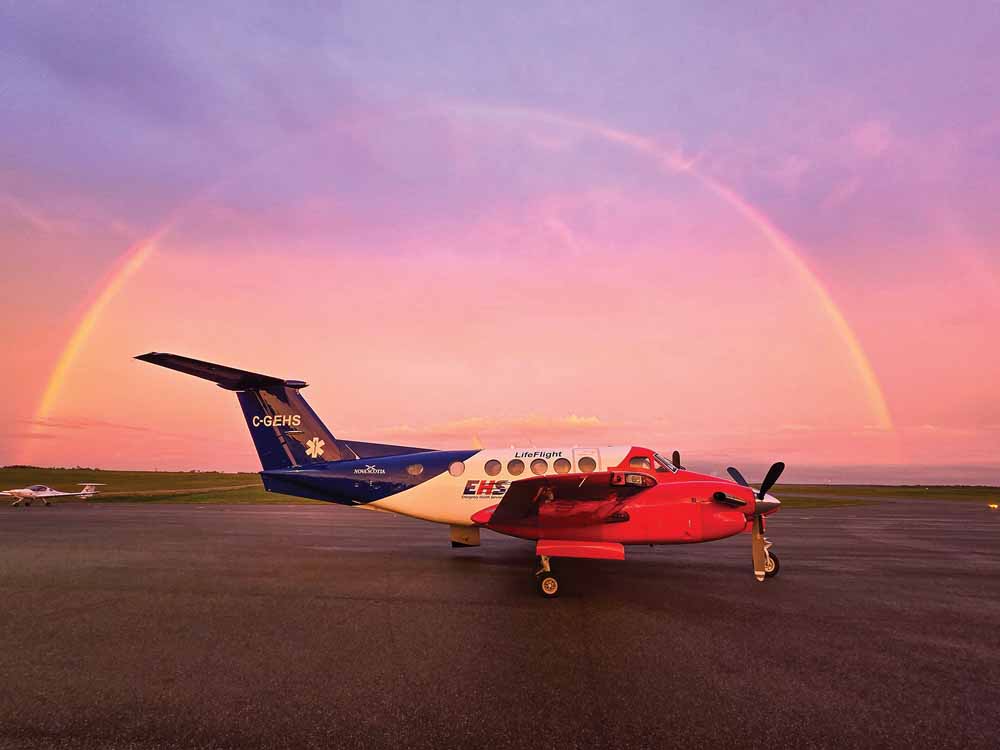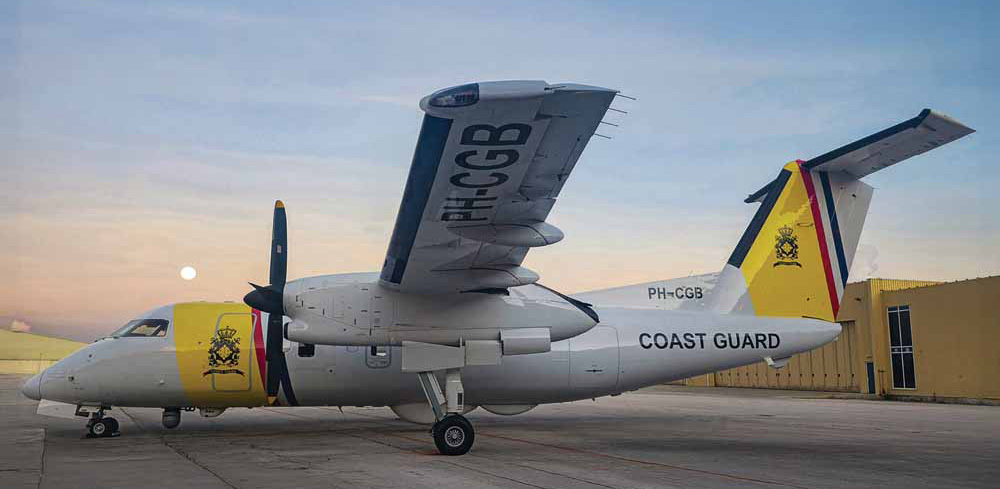PAL Aerospace

A rainbow sunset over a PAL Aerospace Super King Air at Sydney International Airport. Photo: F/O Don Whitton (PAL Aerospace)
At A Glance
Pilots joined ALPA: 2020
Number of pilots/flightcrew members: 72
Pilot bases: St. John’s, Nfld. and Labr.; Halifax, N.S.; Campbell River, B.C.; Curaçao; and the UK
Headquarters: St. John’s, Nfld. and Labr.
Operations: PAL Aerospace operates airborne maritime surveillance, managed jets and charters, and air ambulance and supports the Dutch Caribbean Coast Guard. In 2023, the company secured a new contract to provide airborne intelligence, surveillance, and reconnaissance support for the UK to address illegal migration and small-boat crossings.
Fleet: King Air BE20s, King Air B200s, King Air 350s, Beechcraft 1900s, de Havilland Dash 8-106s/-300s, and Gulfstream 6s
Last year began much like the previous one ended, with little to no progress in bargaining. During nearly the entire first half of 2024, PAL Aerospace pilots saw only small gains at the negotiating table and were uncertain of whether a collective agreement could be achieved.
Then in June, the pilot group and management reached a deal.
On July 3, the pilots’ Master Executive Council (MEC) and Negotiating Committee announced that after almost four years of contract negotiations, PAL Aerospace pilots had ratified their first collective agreement under ALPA representation. The three-year contract includes improved scheduling measures and working conditions, competitive compensation, stronger job-security protections, and enhanced benefits.
As the pilots move into their next chapter, the MEC is looking to increase volunteer recruitment and develop a robust committee structure to support the pilot group.


